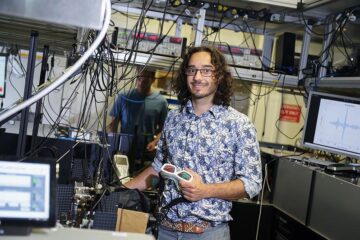Biomarkers for diagnosis of delayed fracture healing

<strong>Background</strong><br>
Delayed or incomplete bone fracture healing can be observed in approximately 5–10% of patients following a fracture of the long bones. Known risk factors for delayed or incomplete healing are severe fractures, old age, steroid therapy or diabetes. No reliable blood or serum marker have been idenitified so far, which are applicable for predicting delayed fracture healing early in time. Osteocalcin, bone alkaline phosphotase and TGF beta have been investigated as predictive markers. However these parameters have only a limited validity for prediction due to a high intra-/ inter patients variability and/ or a late predictive time point.<br><br> <strong>Technology</strong><br> Recent findings suggest a key role of inflammation and T-cell response within the bone repair processes. The invention offers biomarkers for the prediction of delayed bone fracture healing by determining the frequency of two specific T-cell subpopulation from peripheral blood of patients. The frequency of T-cell subpopulations in peripheral blood can be measured with specific anti T-cell antibodies and fluorescence based flow cytometry. <br><br> <strong>Benefits</strong> Reliable biomarker for early predicting outcome of bone fracture healing allowing early interventions <br><br> <p><strong>IP Rights</strong><br> An European patent application was filed at the European Patent Office in February 2012<br> <br> <strong>Origin</strong><br> The technology was developed at theCharité – Universitätsmedizin Berlin(Germany).</p>
Weitere Informationen: PDF
ipal GmbH
Tel.: +49 (0)30/2125-4820
Ansprechpartner
Dr. Dirk Dantz
Media Contact
Alle Nachrichten aus der Kategorie: Technologieangebote
Neueste Beiträge

Neue universelle lichtbasierte Technik zur Kontrolle der Talpolarisation
Ein internationales Forscherteam berichtet in Nature über eine neue Methode, mit der zum ersten Mal die Talpolarisation in zentrosymmetrischen Bulk-Materialien auf eine nicht materialspezifische Weise erreicht wird. Diese „universelle Technik“…

Tumorzellen hebeln das Immunsystem früh aus
Neu entdeckter Mechanismus könnte Krebs-Immuntherapien deutlich verbessern. Tumore verhindern aktiv, dass sich Immunantworten durch sogenannte zytotoxische T-Zellen bilden, die den Krebs bekämpfen könnten. Wie das genau geschieht, beschreiben jetzt erstmals…

Immunzellen in den Startlöchern: „Allzeit bereit“ ist harte Arbeit
Wenn Krankheitserreger in den Körper eindringen, muss das Immunsystem sofort reagieren und eine Infektion verhindern oder eindämmen. Doch wie halten sich unsere Abwehrzellen bereit, wenn kein Angreifer in Sicht ist?…

















